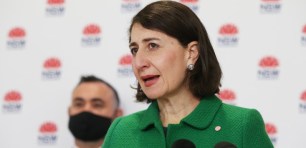
Source: Pexels/Kaboompics
Since publishing, more information on changes to government support payments has become available. Read about changes in Victoria here and New South Wales here.
The Morrison government has confirmed it will turn off the taps on COVID-19 business support, but with details yet to be released, it’s only led to more uncertainty for SMEs trying to plan for reopening.
On Wednesday, the federal government announced COVID-19 Disaster Payments for individuals will come to an end in each state and territory once 80% of the population is fully vaccinated.
It has also reportedly confirmed it has plans to start winding back business support, with details expected to be announced later this week.
The individual disaster payments offered between $450 and $750 per week for people who have lost work due to the pandemic.
A joint statement from Treasurer Josh Frydenberg and Minister for National Recovery and Resilience Bridget McKenzie noted that these will “begin to transition” in each state once it has hit the 70% double-vaccination mark, and will no longer be automatically renewed.
When the state hits the 80% threshold, “the temporary payment will step down over a period of two weeks before ending”, the statement said.
Currently, New South Wales is expected to hit the 80% threshold on October 25, with Victoria expected to follow on November 5.
The Pandemic Leave Disaster Payment, which offers support for people who have to self-isolate due to COVID-19, will remain in place until June 2022.
Currently, the Commonwealth provides 50% of the funding for business support payments in various states, with the state or territory government providing the other 50%.
The announcement comes shortly after both the New South Wales and Victorian governments have announced their own reopening roadmaps.
However, for businesses, it just adds to the many, many pressing questions that are yet to be answered.
The key questions for small businesses
The Council of Small Business Organisations Australia has this week released its own framework outlining some of the key unanswered questions facing small businesses as they prepare for reopening.
It covers concerns around business continuity if a business is an exposure site, and what businesses should do if this happens; and how businesses can prepare for such an event, and what government support will be available to help them do this.
Crucially, it also asks what financial support will be available to SMEs as they rebuild following long periods of closure, and with long-term debt.
“It’s fair enough that you can’t have an unending supply of government support, small businesses understand that. But 70%, 80% are not economic indicators, they are health indicators. It is not reflective of what small businesses are going through, and the fears and uncertainty that accompanies reopening,” COSBOA chief executive Alexi Boyd tells SmartCompany.
Boyd said COSBOA is again calling for a “step down approach” to business support, and the use of existing mechanisms that small businesses are familiar with, such as BAS forgiveness.
“The act of simply cutting off support is neither fair nor proportionate.”
COSBOA continues to hear from small businesses that have been experiencing downturns for months and are still operating at less than 50% after 12 months. Those businesses will need support as they rebuild, says Boyd.
Speaking to SmartCompany, Wes Lambert, chief executive of Restaurants & Catering Australia, says the association has been working with governments and departments in both New South Wales and Victoria to try to ensure that some kind of business support payments will continue until most restrictions are lifted.
It is “critically important” that as much federal and state support as possible remains in place for businesses, he says, to ensure they can manage the transition to full reopening while patron and density caps remain in place.
During this time, it’s also important that employees who are being added back onto the roster, but potentially with fewer hours, don’t end up leaving the industry altogether, “because they are unable to earn enough to sustain themselves until full reopening”, he adds.
On the other hand, a tapering off of individual support may be welcomed by hospitality businesses, he notes.
“Many businesses will certainly be calling back employees for the roster, so will welcome the reduction in disaster relief to encourage those employees to return.”
Chrissie Maus is general manager of the Chapel Street Precinct, a group representing businesses on the iconic street in Melbourne.
Businesses have been “waiting nervously” for the tap of government funding to be turned off, she says.
“I have a pit in my stomach because it is going to take some time for our businesses to restart their operations and get back to their maximum capacity.”
Maus also points to the additional uncertainty this announcement brings, and concerns that density quotas will make it difficult for some businesses to make real profits.
She would like to see payments continuing for “a good six weeks” after reopening, “to give our businesses a fighting chance and to make sure we have a strong economy to start 2022”.
Elsewhere this week, accounting body CPA also outlined some key questions for small businesses, including what their responsibilities are when it comes to turning away unvaccinated customers, or asking their own employees to get vaccinated.
Uncertainty creates risk, CPA Australia chief executive Andrew Hunter said at the time.
“Although businesses can obtain legal advice for some questions, this creates an undue burden, especially for small businesses.”
Lambert echoes this, noting that there is still confusion around managing track, trace and isolate measures for staff and customers, as well as what COVIDSafe plans will be required once businesses can reopen.
“Hospitality businesses in New South Wales and Victoria are screaming out for the details of public health orders so they can be ready for reopening,” he says.
Handpicked for you

Australia Post pauses parcel pickups in Melbourne for five days



COMMENTS
SmartCompany is committed to hosting lively discussions. Help us keep the conversation useful, interesting and welcoming. We aim to publish comments quickly in the interest of promoting robust conversation, but we’re a small team and we deploy filters to protect against legal risk. Occasionally your comment may be held up while it is being reviewed, but we’re working as fast as we can to keep the conversation rolling.
The SmartCompany comment section is members-only content. Please subscribe to leave a comment.
The SmartCompany comment section is members-only content. Please login to leave a comment.